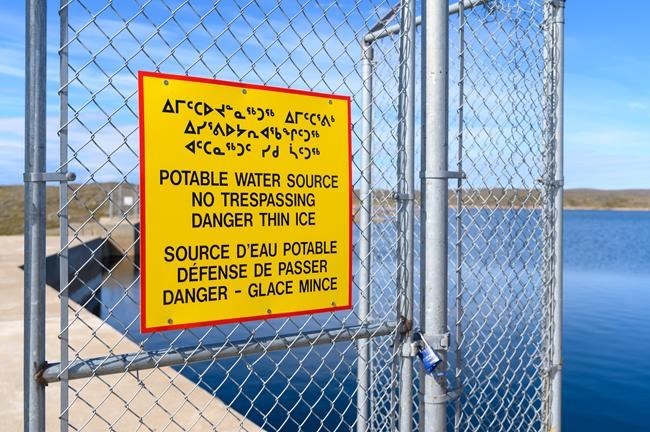IQALUIT, Nunavut — The City of Iqaluit declared a state of emergency Friday due to a water shortage.
The Nunavut capital said there has been a lack of precipitation this summer and flows in the Apex River, which is Iqaluit’s secondary water resupply source, are at a 40-year low.
As a result, Lake Geraldine, which serves as the water reservoir for Iqaluit, will not be replenished before freeze-up.
The city said it is working to get regulatory approval to pump additional water from the nearby Unnamed Lake into the Apex River then into Lake Geraldine.
The city said it will need to pump more than 500 million litres of water. Once approved, pumping is expected to take around 40 days depending on rainfall.
There have long been concerns about whether the water reservoir can meet the needs of Iqaluit's growing population of more than 7,700.
Mayor Kenny Bell, during an emergency city council meeting regarding the water supply on Friday, said work is underway to address the problem.
The federal government committed more than $214 million in April to support a new reservoir and upgrades to Iqaluit's water distribution system. The city expects it will take four years before the project is complete.
A state of emergency in Iqaluit was declared in October 2021 when the city's water supply was contaminated by fuel and subsequently a tar-like substance.
The city has since been using a water treatment bypass system to avoid contamination.
The city said it is currently meeting or exceeding all territorial requirements and federal guidelines for its drinking water. It said additional measures to fill the reservoir will not impact drinking water quality.
This report by The Canadian Press was first published Aug. 12, 2022.
The Canadian Press



